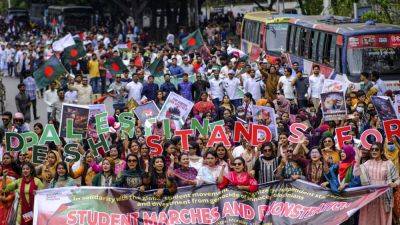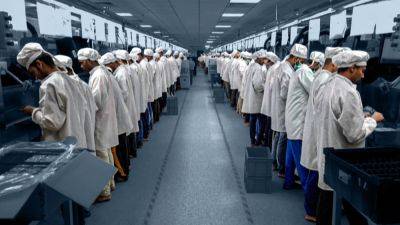AI can be a great leveller for the Global South. Just look at Bangladesh
This may be the doomsday fear. While this technology poses risks, we mustn’t ignore the opportunities it presents too. AI can be a transformative tool for wealth creation and public service delivery in the developing world.
Many have compared the discovery of AI to Prometheus stealing fire from the gods. Just as fire can be used for cooking or arson, depending on whose hands it ends up in, so AI remains as “good” or as “bad” as the people who use it.
03:20
Bangladesh election: young, digital-era voters seek future free from political chaos
In my country of Bangladesh, we have seen that, in the right hands, AI can both protect and transform lives. These successes can, and should, be replicated across the world.
For example, at the start of the Covid-19 pandemic, Bangladesh had just one RT-PCR laboratory capable of the reverse transcription polymerase chain reaction technique used to detect the coronavirus. In a country of 175 million people, this was no small problem.
But by repurposing the country’s toll-free national helpline, we were able to get citizens to self-report their symptoms. By feeding this information into an AI algorithm, we were able to successfully track and manage the disease effectively for the first four months.
Beyond Covid-19, the impact on healthcare can be revolutionary. For example, in Bangladesh, a country with five doctors per 10,000 people, we have seen how AI can be used to dramatically reduce doctors’ paperwork load.
One remarkable example is a pregnancy monitoring app that ensures the safety and well-being of expectant mothers and their newborns by keeping all information related to illnesses and treatment online, in one location.
Similarly for education, we have been able to use AI to provide







